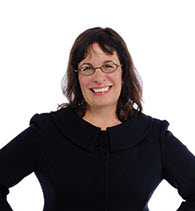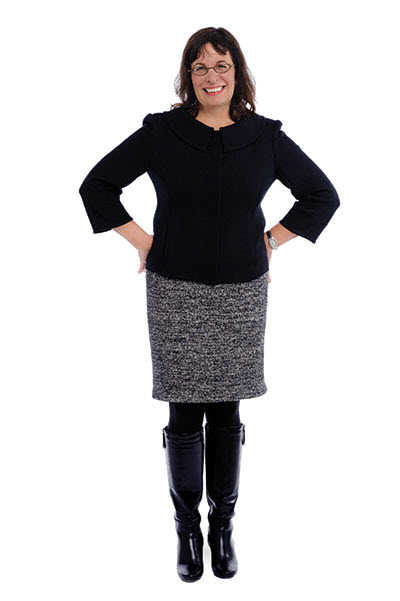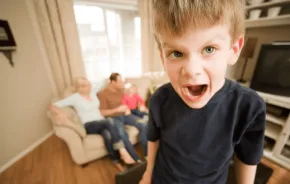
 Jana Mohr Lone doesn’t have answers for kids, just many questions. As the founder and director of the University of Washington Center for Philosophy for Children, she is committed to bring philosophy into young people’s lives. Since 1995 she has taught philosophy to K–12 students and run programs to show teachers, parents, grandparents, college and graduate students, and others how to engage philosophically with kids. She is the author of The Philosophical Child, a book about having philosophical exchanges with children, and writes the blog Wondering Aloud: Philosophy with Young People. See the sidebar below for a curated list of picture and chapter books to inspire philosophical conversations with young people.
Jana Mohr Lone doesn’t have answers for kids, just many questions. As the founder and director of the University of Washington Center for Philosophy for Children, she is committed to bring philosophy into young people’s lives. Since 1995 she has taught philosophy to K–12 students and run programs to show teachers, parents, grandparents, college and graduate students, and others how to engage philosophically with kids. She is the author of The Philosophical Child, a book about having philosophical exchanges with children, and writes the blog Wondering Aloud: Philosophy with Young People. See the sidebar below for a curated list of picture and chapter books to inspire philosophical conversations with young people.
How did you get into teaching philosophy to kids?
Before I did my philosophy Ph.D., I was a lawyer. I really wanted to do work that was empowering to children. I felt like the law could help when bad things happen, but it couldn't do much to help children really shape the course of their own lives.
In my own life, one of the things that I think really helped me be resilient when I had difficult things to deal with was my trust in my own judgment and my ability to think through things.
I was working on my Ph.D. in philosophy and I had small children. My oldest son was 4 and was starting to ask those questions — “how can you be happy and sad at the same time?” — and I thought, these are philosophical questions. I'd never really thought before about whether children were philosophical or not. But then I started remembering my own childhood and how I would ask questions like, “Who am I? Why am I here?”
I talked my son’s kindergarten teacher into letting me come into a class and it was really amazing, the questions these students were coming up with and the way they wanted to talk about them. I thought, this is what I want to do.
Are philosophical concepts too big for kids to understand? Some adults can't, or don't, contemplate the big questions.
Kids don't have as much clutter in their heads. They're looking at the world with very fresh eyes. They're really curious about things like “How can there be air if we can't see it?” They're earnestly trying to figure things out.
Also, in school, kids are really trying to memorize facts and then prove what they know — it's all about outcomes now in education. But philosophy is such a different kind of enterprise. It's not about knowing the answers to the questions; it's about thinking through what the answer might be and getting all the ideas out around the table. It takes a lot of pressure off of kids — they're able to throw out their ideas without really being worried about getting it wrong. And for adults involved in philosophical inquiry, it reminds us that this is part of being a conscious human being.
We’re in what, for many people, is one of the most spiritual seasons of the year. How does philosophy intersect with religion for you?
For me, Judaism is all about asking questions — about each other, about God. And philosophy is just like that. It's a dialogue, an exchange about what these things mean.
What's a common philosophical question most young children deal with?
Death. I use a book called Duck, Death and the Tulip. It brings up a lot of questions: “Why do we die? Is it possible some of us live on? Is there a spirit separate from our body that can outlive it, and will that spirit have our personality?” A lot of kids are wondering about this.
Why are storybooks so important to teaching philosophy?
Narrative opens us up to being in an experience that isn't our own. It opens up the conversation and it demystifies philosophy. In the United States, where there’s no philosophy generally in high school, philosophy is thought of as this difficult, esoteric thing. People don't feel like they do it or know anything about it. But then you look at this conversation Frog and Toad are having — that's a philosophical conversation. Philosophy is very much about language. Most good children's books are philosophically interesting … they're rich with ideas.
What was your childhood like?
I grew up in New York. My dad was very much engaged in talking about ideas all the time — arguing with me, wanting to know my views on things, and then wanting to make sure I had a fairly good justification for them. I was a big reader and I had always thought about those questions, especially the metaphysical ones. I took my first philosophy class in high school and it was totally transformative … I was like, "People can get jobs doing this?!"
We're living in a more wired world, constantly in front of screens. Are we in danger of losing our moral compass?
We could certainly become too distracted to find our moral compass. But I don't think we have, and I don’t think we will.
Because what I see is that kids — as wired as they are — they're really hungry for meaningful dialogue.
It's a danger, the screens and the virtual communication, because it's only a superficial form of communication. Not that it's not great … but being face to face, there's no substitute for that. And when you're in a group of other people your age and able to talk about things like “What does it mean to be a good person?' — those kinds of conversations can frame your own set of views and values in a way that nothing else can. By talking about philosophy, young people are getting this idea that there are a lot of different ways to see the world.
What is the meaning of life?
There's a great children's story called The Three Questions, which is an adaptation of a Tolstoy story. It's about this little boy who has three questions, and they are: What's the most important time? Who's the most important one? And what is the most important thing to do? Eventually the boy meets up with Leo (Tolstoy!) the Turtle, and Leo teaches him that the most important time is now, the most important person is the one you're with, and the most important thing is whatever you’re doing at the moment. So I always ask children, “Do you think these are the most important questions and if not, what do you think are?”
But what a philosopher would say to that question, first of all, is — Is there meaning to life?

Natalie Singer-Velush is ParentMap’s Managing Editor and a longtime journalist and writer. She lives in Seattle with her two school-aged children and green-thumb husband. When she was a child, she daydreamed about the big questions, too.









